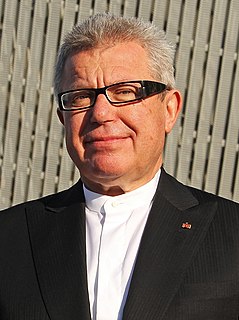A Quote by Kyle Hill
We brick-and-mortar ourselves away from nature. The outside world is behind glass, underneath a slab of concrete, running through PVC. Our steel and concrete are suitable enough until nature comes knocking. And when she wants to get in, nothing can stop her.
Related Quotes
You feel a certain way in a glass or concrete or limestone building. It has an effect on your skin - the same with plywood or veneer, or solid timber. Wood doesn't steal energy from your body the way glass and concrete steal heat. When it's hot, a wood house feels cooler than a concrete one, and when it's cold, the other way around.
[London is] like the sight of a heavy sea from a rowing boat in the middle of the Atlantic.... One lives in it, afloat but half submerged in a heavy flood of brick, stone, asphalt, slate, steel, glass, concrete, and tarmac, seeing nothing fixable beyond a few score white spires that splash up like spits of foam above the next glum wave of dirty buildings.
And she loved a man who was made out of nothing. A few hours without him and right away she’d be missing him with her whole body, sitting in her office surrounded by polyethylene and concrete and thinking of him. And every time she’d boil water for coffee in her ground-floor office, she’d let the steam cover her face, imagining it was him stroking her cheeks, her eyelids and she’d wait for the day to be over, so she could go to her apartment building, climb the flight of stairs, turn the key in the door, and find him waiting for her, naked and still between the sheets of her empty bed.
Nature! We live in her midst and know her not. She is incessantly speaking to us, but betrays not her secret. We constantly act upon her, and yet have no power over her. Variant: NATURE! We are surrounded and embraced by her: powerless to separate ourselves from her, and powerless to penetrate beyond her.



































